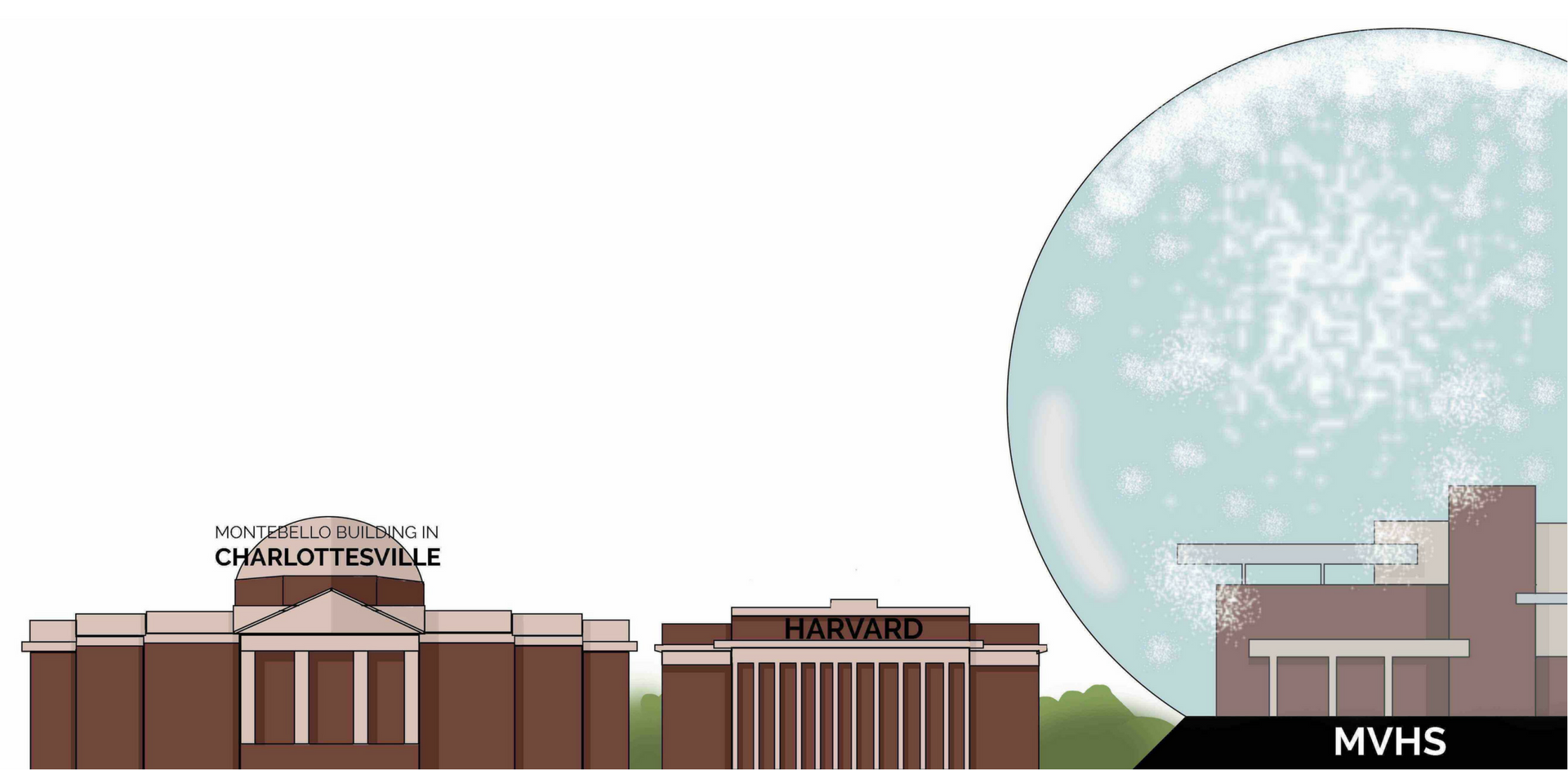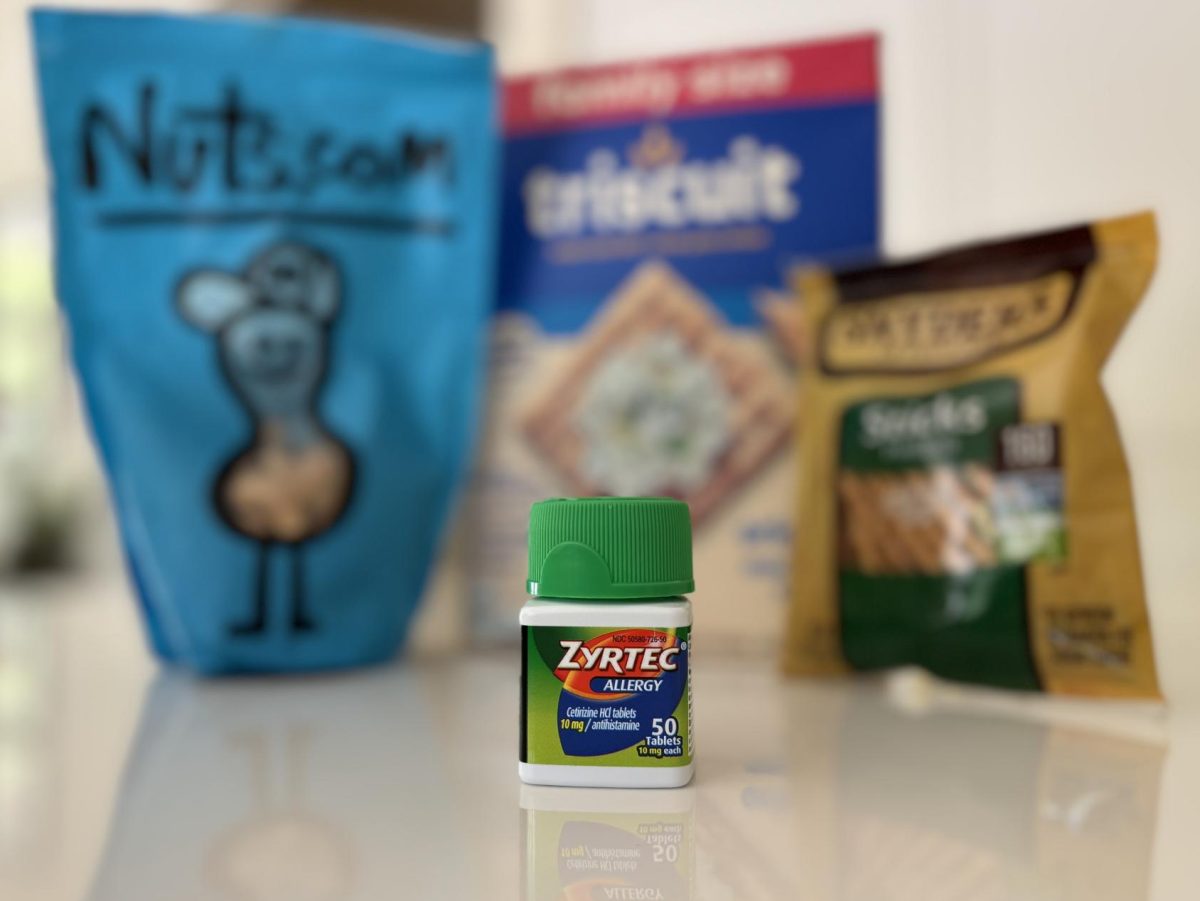e would like to say there isn’t a problem with bubbles. After all, they’re safe, protecting us from the outside world. Without bubbles, we wouldn’t feel that sense of comfort that comes with being able to assume someone’s personal or political views. It makes conversations easier within the community. But with consideration to the greater part of the world outside Cupertino, our bubble breeds ignorance.
In the largely liberal Bay Area, our bubble has made us hypersensitive to any conversation about controversial topics like gender or race. We are hyper-aware of even the slightest discriminatory remark. It’s taught us to tread lightly, choosing our words carefully. Some might even say that we’ve become “snowflakes,” a term used to describe liberals who are offended easily.
While our hypersensitivity is partly due to the political demographics of the Bay Area, and MVHS more specifically, it is mainly because we aren’t truly aware of what discrimination is. Severe prejudice is so rare here that it can be easy to mistake small acts of inequality as outright racism.
We live in a place where some people accuse others of being “racist,” when in fact they simply mistake two friends of the same race as siblings. It’s easy to blame race when we’re so used to our typically equal community, but the privilege that comes with an educated environment also leaves us much more unaware about what is and isn’t racism. It’s only when we start to accuse everything of being a personal attack that it becomes a problem.
The recent lawsuit filed against Harvard — accuses colleges of not accepting students because of their race — is just one of many examples of our society calling out small, almost inconsequential, instances of potential prejudice. While Harvard may or may not have taken race into account, that story has gotten an abundance of media attention. To put things in perspective, a group of klansmen and neo-Nazis killed Heather Heyer and injured 19 other protesters in Charlottesville just a few weeks later.
Clearly, these two events are anything but comparable. One resulted in death and injury while the other resulted in a rejection from Harvard University. Yet, they are seemingly getting equal airplay on social media — at least in Cupertino.
While pointing out every minor injustice and small act of inequality may seem like a righteous thing to do, more than anything, it desensitizes us to the larger and more important instances of discrimination. These more serious and hurtful cases of prejudice deserve the spotlight — not to say that other instances of bigotry are not important — because they are. But bringing attention to the worst problems in our society helps create a more equal place for everyone.
There are people all over the world who have to deal with prejudice so severe that they fear for their lives daily. It is both insensitive to victims of discrimination and counterproductive as a whole to constantly dilute Facebook and Twitter feeds with posts calling the women only screening of “Wonder Woman” sexist. This achieves nothing. But more importantly, it makes the much more serious acts of hate look more inconsequential than it should be.
It shouldn’t be surprising that people were astounded by all the bigotry and hate that followed the 2016 election. The vast majority of the “prejudice” that people had seen before then was trivial acts of inequality, so when blatant racism was blasting on CNN, it shocked many people.
In Cupertino, our lives work in the way that our Facebook news feeds do — the important things are slowly becoming drowned out alongside our complaints and jokes. So when both major and minor acts of discrimination present themselves, we shouldn’t equate them as the same.
If there is anything to learn from the recent increase of hate that has shocked our nation, it’s that we need to keep everything in perspective.
While the Cupertino bubble has taught us to be extremely careful with our words, there is a fine line between being careful and being hypersensitive. So the next time we witness something potentially discriminating we should take a minute, stop and think to ourselves: “is pointing this out going to help solve the issue or just trivialize it more?”
Maybe those small incidents can be accredited to someone else’s innate racism. While that inherent racism is problematic, we are still a long way from fixing people’s natural prejudice. In the meantime, our complaints should be targeted towards more pressing issues.
There are countless hateful incidents happening every day just because of race. Some are dire and some are a lot less so. Every time we complain about our own, less than life-threatening, problems, it numbs us to the fact that somewhere in this world, the color of someone’s skin could be the difference between life and death.










